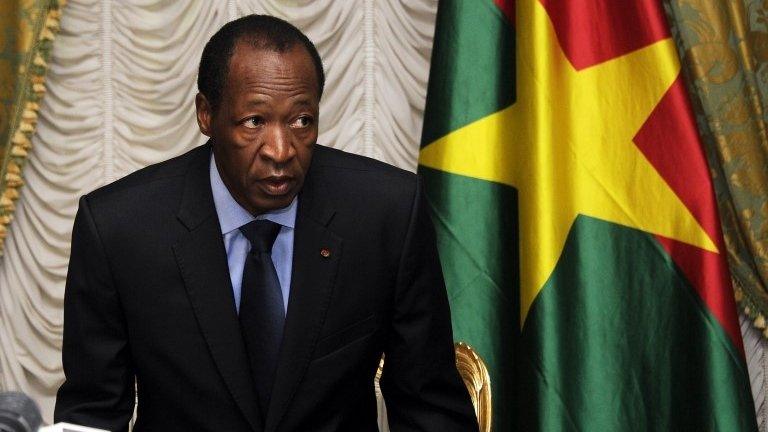Mogho Naba: Burkina Faso's mediator monarch
- Published
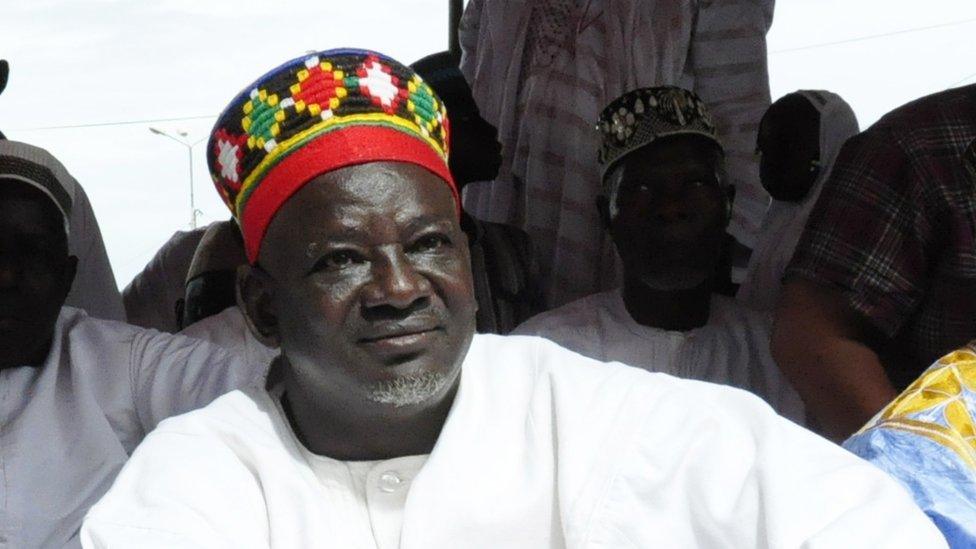
Mogho Naba Baongo II is said to have played a key role in helping Burkina Faso avoid a bloodbath
The Mogho Naba played a key role in brokering the return of civilian rule to Burkina Faso after last week's military takeover. The BBC's Lamine Konkobo has this profile of the traditional ruler.
Mogho Naba is the title of the reigning monarch of the Mossi ethnic group and reigns over a traditional kingdom that dates back to the 12th Century.
The title means the "king of the world" in the language of the Mossi community, who constitute about 40% of the country's population of 17 million people.
Baongo II has been king since 1982.
Once a powerful master over his Mossi subjects, the authority of the Mogho Naba was significantly curtailed during the presidency of anti-imperialist revolutionary Thomas Sankara prior to his death in October 1987.
Nowadays, the Mogho Naba is seen as a symbol of tradition.
The influence of the king in modern political matters is based on the fact that the centre of power in Burkina Faso, the capital Ouagadougou, lies at the heart of his kingdom - the Mossi Plateau.
Out of respect for tradition, it is customary for powerbrokers seeking to establish a foothold in Ouagadougou to seek his symbolic approval.
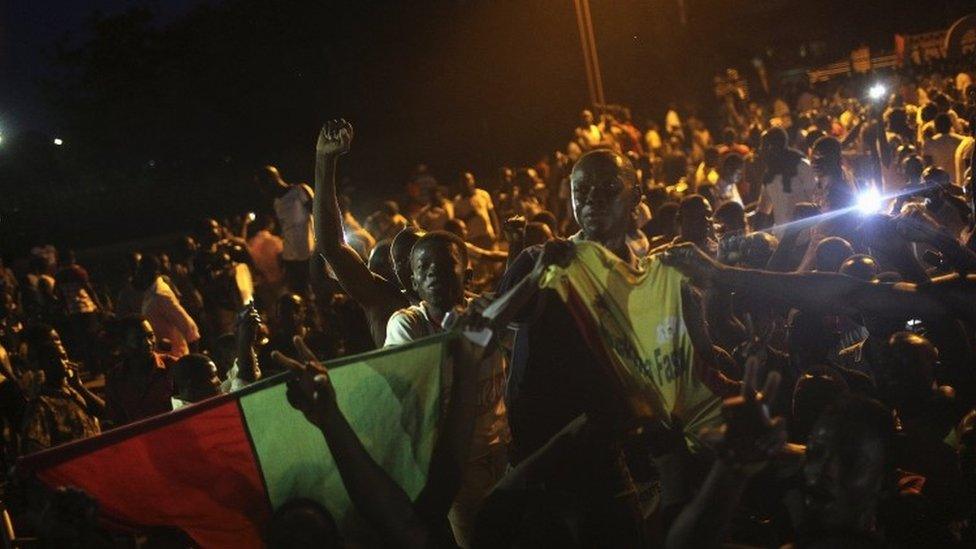
Crowds gathered outside the residence of Mogho Naba during the latest stand-off between the civilian government and the military
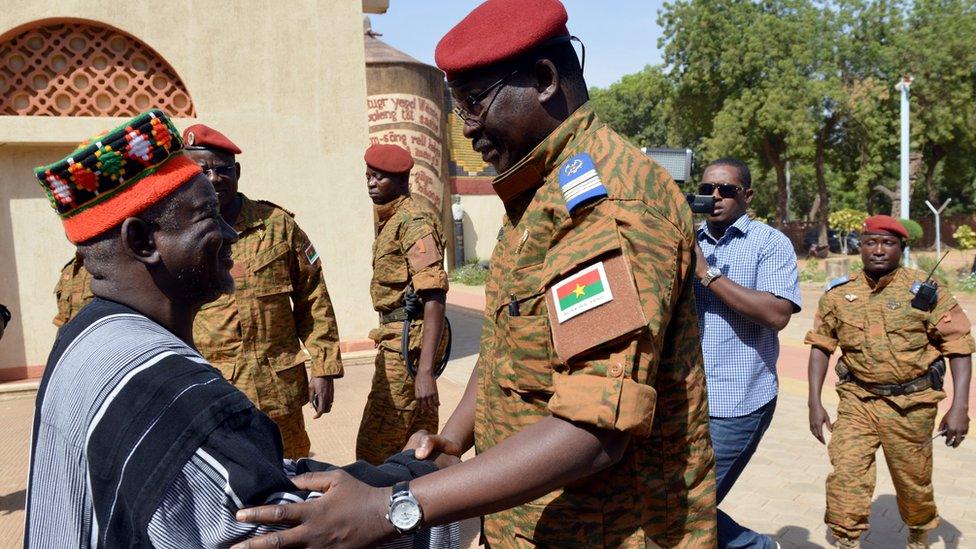
Baongo II (left) regularly receives the great and the good
MPs elected to the national parliament, ministers as well as ambassadors are known to respect that tradition.
In times of crisis, the role of the "Naba" becomes even more important.
Like the British Queen, he is supposed to be politically neutral, which is an asset when there is a breakdown of dialogue.


Since the uprising of October 2014, when President Blaise Compaore was forced to resign by massive street protests, protagonists of the crisis have taken turns visiting his compound, seeking to benefit from his wisdom.
For instance, the transitional Prime Minister, Lt-Col Isaac Zida, went to the king's palace for a courtesy visit shortly after taking power following the popular revolt.
He later returned again when presidential guards, in July this year, stormed a cabinet meeting to demand his resignation from the government.
And it was no surprise that the coup leader, Brig-Gen Gilbert Diendere, paid Baongo II a visit following the announcement earlier this week that army units were bearing down on Ouagadougou to disarm his soldiers.
The king is said to have played a key role in helping Burkina Faso avoid a bloodbath as negotiations between officers from both side of the military spectrum took place in pursuit of an end to the stand-off following last week's coup.
Baongo II is well suited to such diplomacy - he is Western-educated, speaks French eloquently, is an avid football fan and was a one-time boxer.
But in official functions, he only speaks Moore, his mother tongue. He engages his various guests through his spokesperson, Larle Naba, his minister of communication and custodian of oral tradition and folklore.
- Published23 September 2015
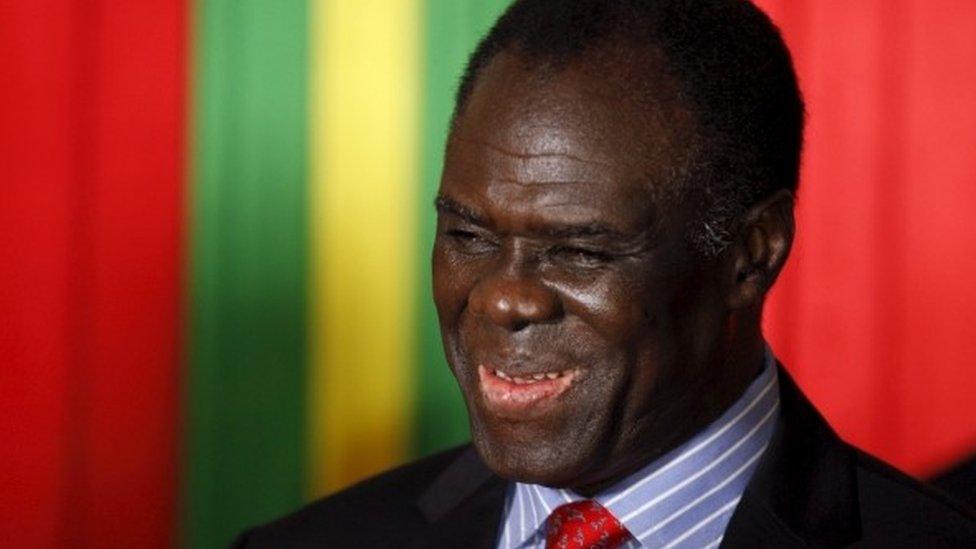
- Published22 September 2015
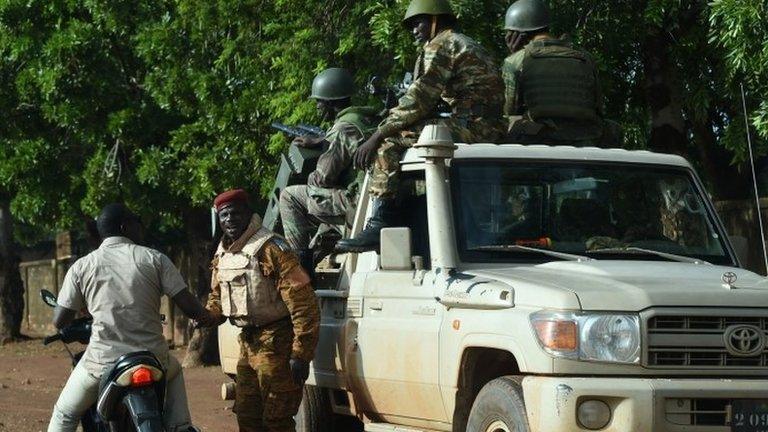
- Published25 September 2015
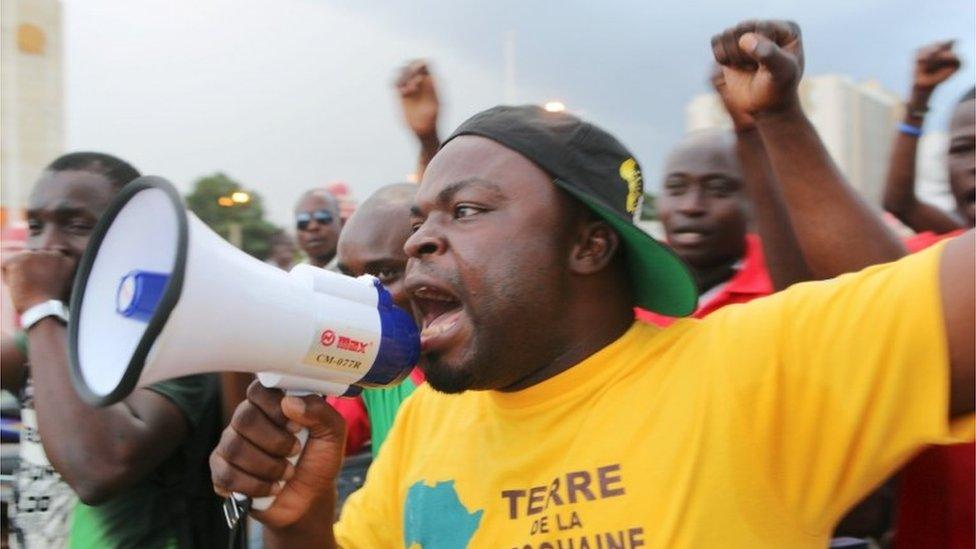
- Published26 February 2024
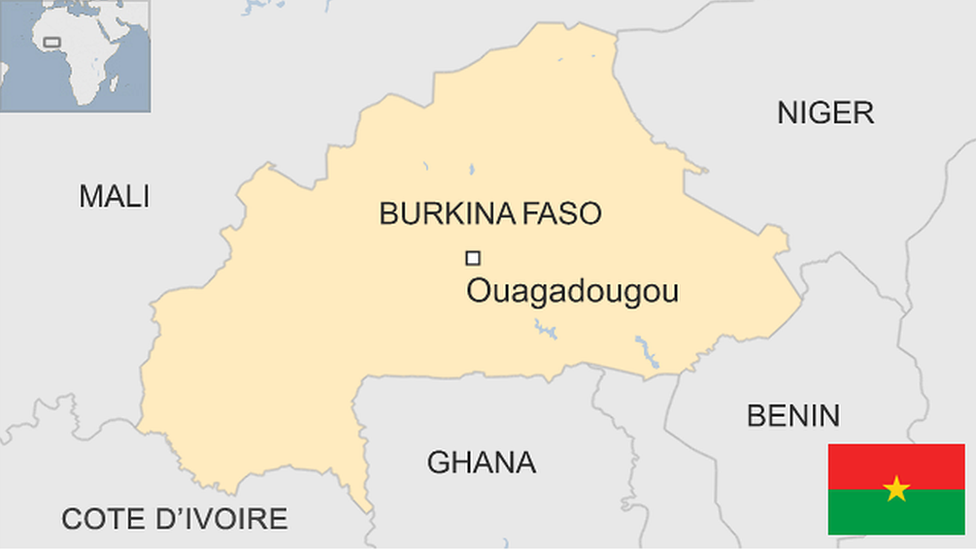
- Published31 October 2014
